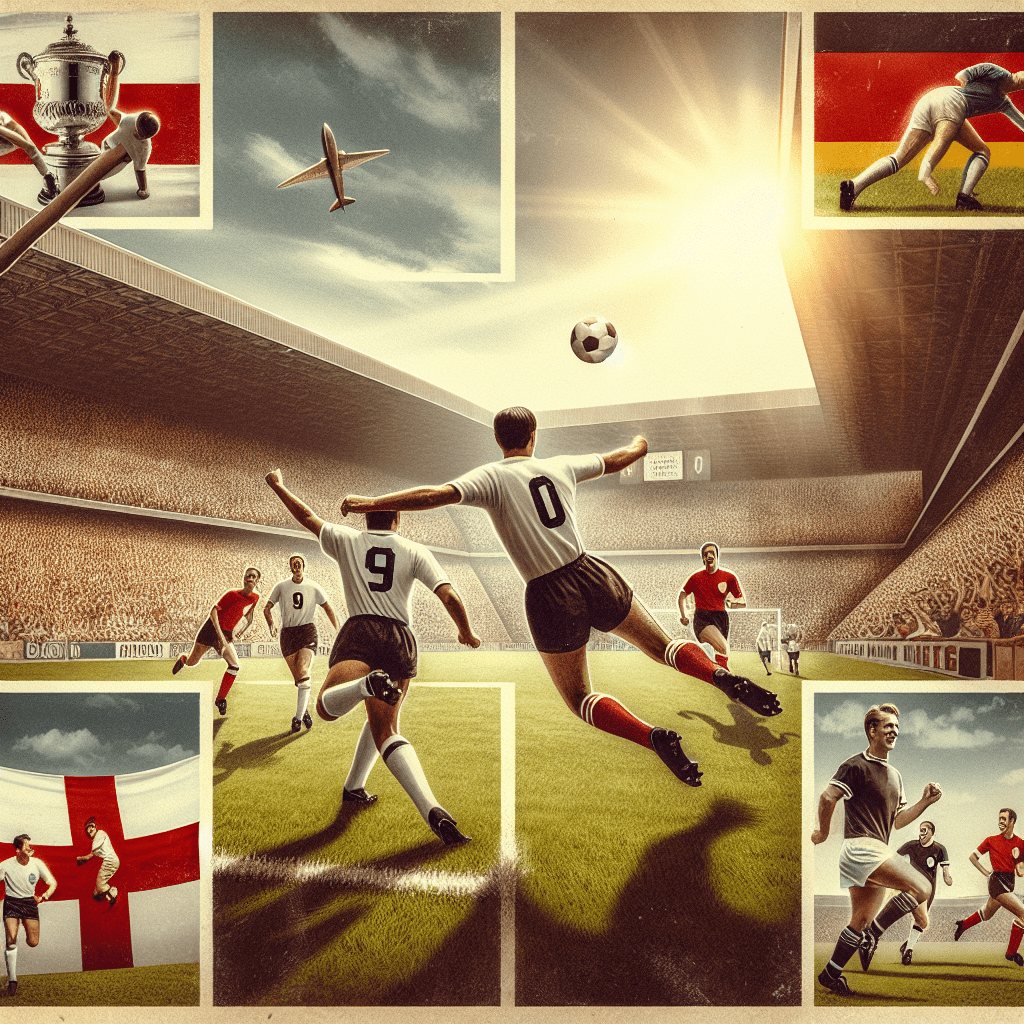[ad_1]
The England vs. Germany soccer rivalry is one that transcends mere sport, embedding itself into the cultural and historical consciousness of both nations. This fierce competition, marked by significant matches, has a narrative that goes well beyond 90 minutes on the pitch. Herein, we explore the intricacies of this iconic rivalry, delving into the historical context, memorable clashes, and the socio-political undertones that have fueled it.
Historical Underpinnings
The roots of this rivalry can be traced back to the early 20th century, set against the backdrop of two World Wars. While it would be simplistic to attribute the competitive nature of these matches entirely to historical conflicts, there’s no denying that these events have cast a long shadow over Anglo-German relations, spilling over into the sporting arena. The first official match between England and Germany took place in 1930, but it wasn’t until the post-war era that the rivalry truly intensified.
The defining moment that solidified the England-Germany soccer rivalry came in 1966 during the FIFA World Cup final held at Wembley Stadium. The match, watched by millions, saw England win their first and only World Cup, but not without controversy. Geoff Hurst’s goal in extra time, known as the “Wembley Goal,” sparked debate over whether the ball had fully crossed the line. This incident has since become a perennial talking point and symbolizes the intense competition and occasional friction between the two nations.
Memorable Clashes
Over the years, there have been numerous encounters between England and Germany that have fueled the rivalry. The 1990 FIFA World Cup semi-final in Italy is one such match. England’s hopes were dashed in a penalty shootout, with the image of Paul Gascoigne’s tears becoming a lasting memory. Similarly, the Euro 1996 semi-final, held in England, saw another penalty shootout loss for the Three Lions, further entrenching the rivalry in the hearts and minds of fans.
The rivalry, however, is not one-sided. The 5-1 victory by England over Germany in a 2001 World Cup qualifier in Munich marked one of the most significant matches in the history of English football. It was a performance that temporarily shifted the narrative, allowing England fans to hold onto a monumental victory against their old rivals.
Socio-political Context
The England vs. Germany rivalry is not confined to the field; it reflects broader socio-political tensions and historical narratives. Media coverage in both countries often invokes wartime language and imagery, sometimes exacerbating nationalist sentiments. While most fans enjoy the rivalry in good spirit, it’s important to recognize the fine line between national pride and nationalism.
The Future of the Rivalry
As time moves on, the World Wars become more distant memories, and the socio-political landscape of Europe evolves, the nature of the England-Germany rivalry is also changing. While competitive spirit remains, there’s a growing appreciation for mutual respect and sportsmanship. Initiatives aimed at remembering shared history while promoting peace and reconciliation have become part of the narrative.
The rivalry has also been characterized by the exchange of players and coaches between the English Premier League and the Bundesliga, fostering a greater understanding and appreciation of each other’s footballing cultures. This has, to some extent, transformed the rivalry from one marked by animosity to a more respectful competitive spirit.
FAQs
Q: What sparked the England vs. Germany soccer rivalry?
A: The rivalry was primarily sparked by historical conflicts, including two World Wars, and was intensified by significant football matches, notably the 1966 World Cup Final.
Q: Have England and Germany ever played in a World Cup Final?
A: Yes, England and Germany played in the 1966 World Cup Final, which England won 4-2 after extra time.
Q: How does the rivalry impact fans?
A: The rivalry stirs strong emotions, with each match seen as an opportunity for national pride. However, there’s a growing emphasis on sportsmanship and respect among fans.
Q: Is the England vs. Germany rivalry based only on football?
A: While football is the primary arena for the rivalry, it reflects deeper historical, cultural, and socio-political tensions between the two nations, though these are increasingly being replaced by mutual respect.
Q: What has been the impact of this rivalry on the game of soccer?
A: The rivalry has elevated the competitive nature and significance of matches between England and Germany, often resulting in highly anticipated and fiercely contested games that attract global audiences.
[ad_2]






